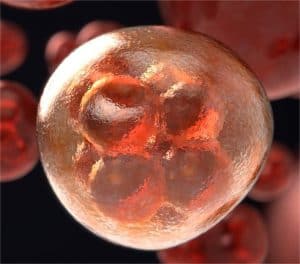Featured Products
Explore Products
- In-Stock Tumor Cell Lines
- Human Orbital Fibroblasts
- Human Microglia
- Human Pulmonary Alveolar Epithelial Cells
- Human Colonic Fibroblasts
- Human Type II Alveolar Epithelial Cells
- Human Valvular Interstitial Cells
- Human Thyroid Epithelial Cells
- C57BL/6 Mouse Dermal Fibroblasts
- Human Alveolar Macrophages
- Human Dermal Fibroblasts, Adult
- Human Lung Fibroblasts, Adult
- Human Retinal Muller Cells
- Human Articular Chondrocytes
- Human Retinal Pigment Epithelial Cells
- Human Pancreatic Islets of Langerhans Cells
- Human Kidney Podocyte Cells
- Human Renal Proximal Tubule Cells



 Human Embryonic Stem Cells (ESCs) are derived from the inner cell mass of the human blastocyst. These pluripotent cells possess an extraordinary ability for continuous self-renewal under appropriate culture conditions, generating identical undifferentiated progeny. When transplanted into immunodeficient mice, human ESCs form benign teratomas containing well-organized tissues derived from all three germ layers—ectoderm, mesoderm, and endoderm. These tissues can include structures such as skin, muscle, neurons, and even teeth, offering a powerful in vitro model to study early human development and cellular differentiation.
Human Embryonic Stem Cells (ESCs) are derived from the inner cell mass of the human blastocyst. These pluripotent cells possess an extraordinary ability for continuous self-renewal under appropriate culture conditions, generating identical undifferentiated progeny. When transplanted into immunodeficient mice, human ESCs form benign teratomas containing well-organized tissues derived from all three germ layers—ectoderm, mesoderm, and endoderm. These tissues can include structures such as skin, muscle, neurons, and even teeth, offering a powerful in vitro model to study early human development and cellular differentiation.